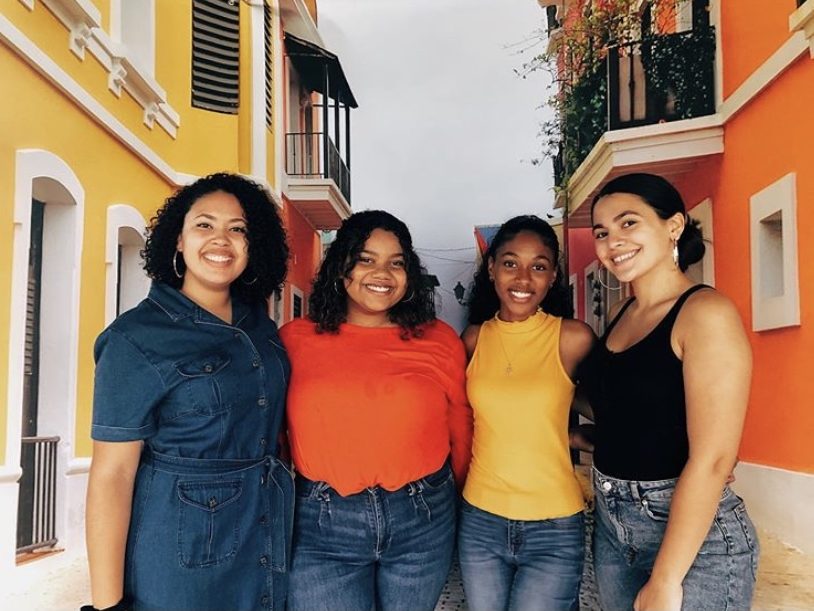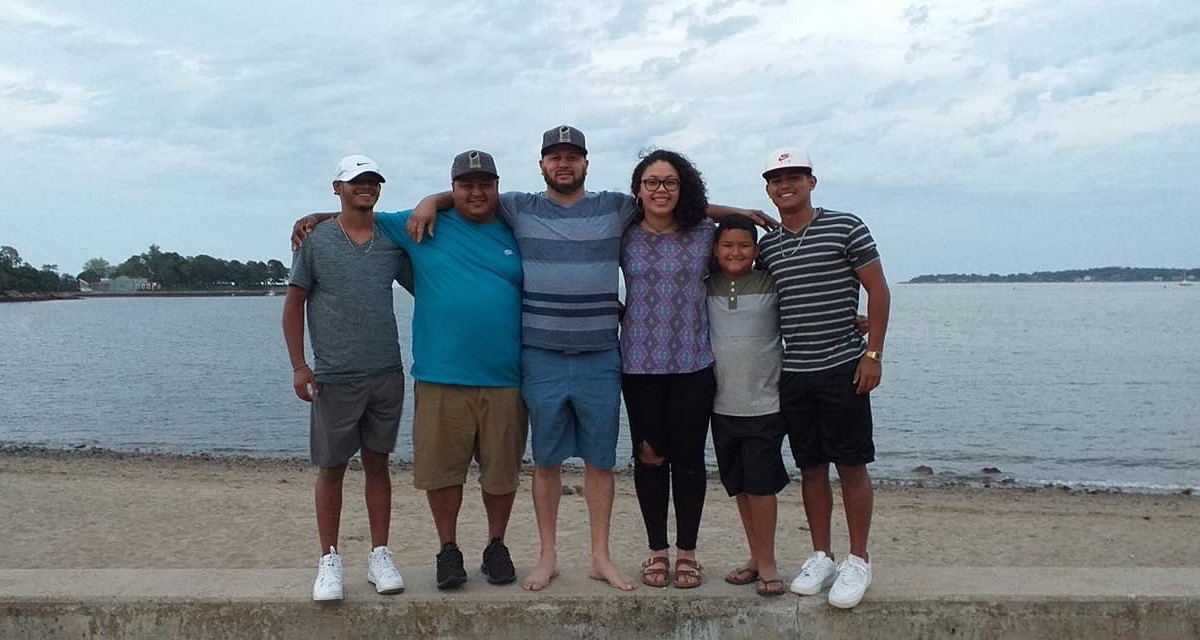Proud to be Boricua: Brianna Rivera ’22
In first grade, Brianna Rivera ’22 rushed to greet one of her classmates with a hug and a kiss—that was the norm in her Puerto Rican family. But it wasn’t quite the norm in Danvers, MA, and she got in trouble with her teacher. “That early moment made me realize my culture is different.”
Growing up, Rivera often found herself confused or ashamed of her culture in a predominantly white region. She often pulled her textured, curly hair into ponytails and wore jeans and zipped-up jackets to hide her figure. But today, she embraces her culture and is proud to be Boricua, or Puerto Rican. Though her many relatives are now scattered throughout the US, they hold tightly to their culture.
September 15 through October 15 marks Hispanic Heritage Month, and to celebrate, Gordon’s La Raza club highlights a different Hispanic or Latin American country each year. The focus of the Hispanic Heritage Month celebration this year is Puerto Rico, so in honor of her Boricua roots, Christian ministries major Rivera shares reflections on her culture in an interview with The Bell.

The Bell: Where were you and your family members born?
Rivera: I was born in Massachusetts. So were my mom and by siblings—born and raised here. My dad moved to the United States from Puerto Rico when he was 17 or 18. He grew up in great poverty, so hearing from his family who moved to Maryland that it was possible to break that cycle is what drove him to come. And then he met my mom here, and the rest is history. They’ve been married for 20 years now.
What’s one of your favorite traditional foods?
Homemade sweet bread. My dad just got his recipe down, and it’s incredible.
How about favorite music?
I grew up on salsa. Every Saturday morning when it was cleaning time, my mom would blast salsa on the big speakers in the living room and would jam to Marc Anthony.
Favorite Puerto Rican tradition?
Christmas season is the best with family. We get together on la Nochebuena (Christmas Eve). Everyone dresses up, and we have a lot of good food like pernil, which is pork but specifically prepared and seasoned. We usually open one gift that night. It’s such a nice night with dancing and music and good food.
How has being Puerto Rican shaped your values?
Hospitality is a big value as a Puerto Rican—it’s our number one thing. There are people in my family who have nothing but still find a way to host people. So even in the midst of times where hospitality hasn’t been reciprocated, having that foundation in my culture has allowed me to continue being hospitable. It’s the biggest joy for me. And my parents, for instance: If you come over, it doesn’t matter who you are—they will cook a three-course meal.
How has your heritage shaped your faith?
I come from a culture that’s rooted in love, so it comes very easily to me to love people and love God. I’ve never really struggled to understand that God loves me, because I’ve seen it my whole life with my family in such a beautiful way. And if my family can be like that, then no doubt, there’s a God out there that can show me that. That’s given me a rooted trust in the Lord. And even on the island, I’ve seen the Lord sustain my family through really hard times.
How did you come to embrace your roots?
I went through the stages of denial, anger and acceptance, but didn’t notice that I was going through them until recently. As a little kid, I went through that whole process of not wanting to be different, and I hated my culture. I was like, “Why can’t we just be white?” In high school I wondered why I couldn’t look like the kids at my school who were getting more opportunities. But I definitely went through all of that so that I could be where I am now. I’ve gotten to the point of true self-acceptance and wanting to learn more about my culture.
What advice would you give to anyone building relationships with Hispanic Americans?
I’d say learn. Self-educate, read and try to look at different cultures with an unbiased view. Also, don’t be afraid to ask questions—just ask them respectfully. People of color—especially Latino communities—want to be heard. We’re so proud of where we come from that if you just ask us a question, we’ll tell you all about our culture.
What is one piece of advice you would give to Hispanic Americans who may struggle with identity?
Learn about your culture. The more you dive deep into your roots, the more you see reflections of yourself. This allows you to have a deeper understanding of why you are the way you are or why you have certain tendencies. When I took that journey to learn about where I come from, I began to see there’s so much beauty on the island I should be proud of.
By Ellian Chalfant ’22, communication arts
 The Bell
The Bell